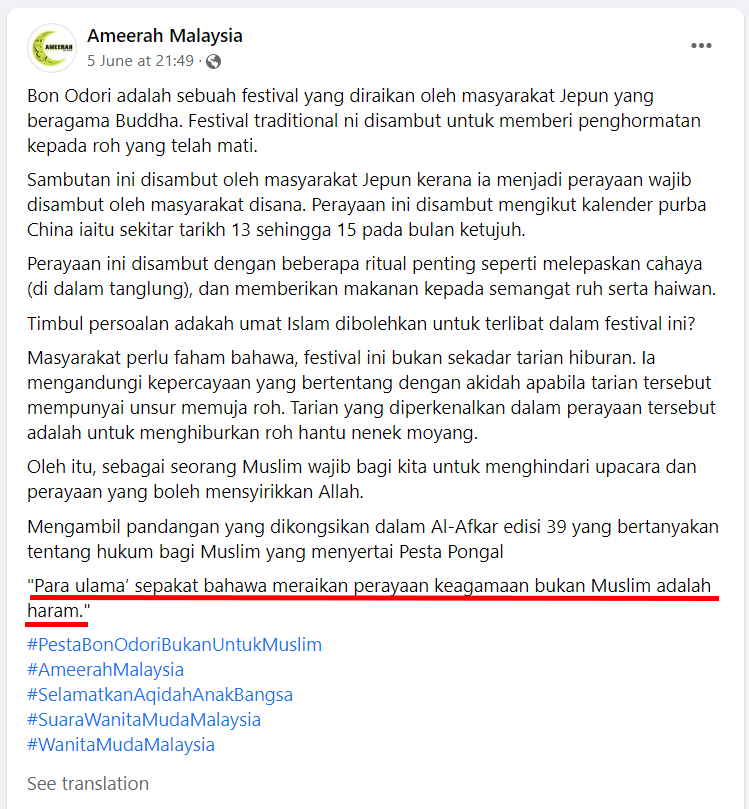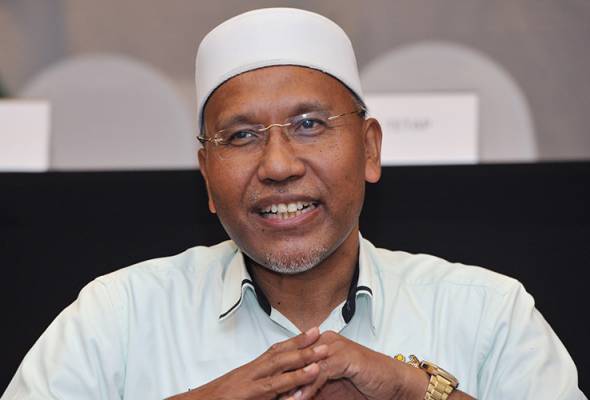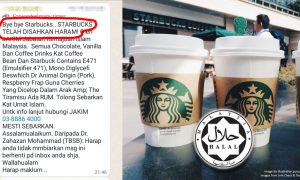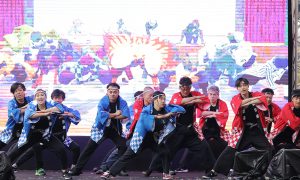This Japanese festival might not actually be ‘haram’. Here’s what the mufti really said
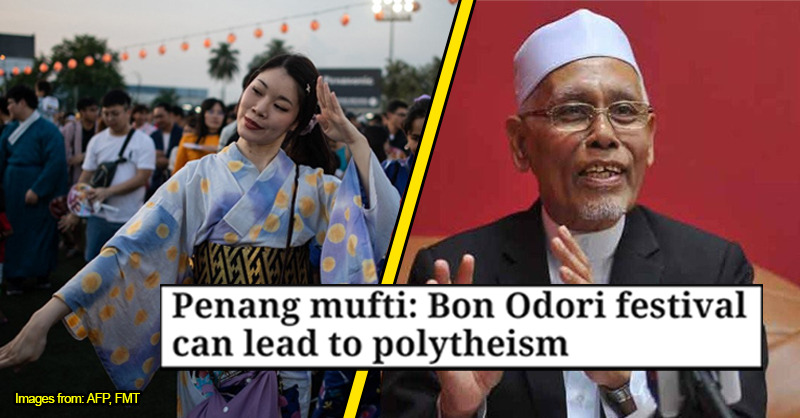
- 690Shares
- Facebook678
- Twitter2
- Email2
- WhatsApp8
It’s nothing new for Malaysians to attend Japanese events; as we’ve mentioned before, yes, Malaysia really loves Japanese culture. But it seems that this doesn’t apply to all Malaysians. Recently, PAS young women’s wing Ameerah came out saying that Bon Odori, a 500 year-old annual Japanese festival celebrated in Malaysia, is haram.
Several religious authorities have also appeared to speak out in a similar vein, such as Penang State Mufti Wan Salim Wan Mohd Noor, and Religious Affairs Minister Idris Ahmad. Yet despite all that’s been said about Bon Odori being haram, we’re not 100% sure (yet) that it can be labelled as such.
But before we get into why, let’s look at the origins of Bon Odori, which might provide some clues as to why this discussion is going on in the first place.
Bon Odori is the Japanese version of the Chinese Hungry Ghost Festival
Bon Odori (also known as ‘Obon’) is thought to originate somewhere in India, before spreading to China and Japan. The legend goes that Maha Maudgalyayana, a disciple of the Buddha, became upset when he saw his mother suffering in the Realm of Hungry Ghosts. On the Buddha’s advice, Maha Maudgalyayana made offerings to Buddhist monks returning from their summer retreat; an act that we presume earned him enough Heaven Points™ to free his mother.
Following his mother’s freedom, he proceeded to dance with joy. This dance, originally meant to welcome the spirits of the dead, came to be known as Nenbutsu Odori, and remains the main highlight of the Bon Odori Festival to this day:
However, it seems that the dance is no longer practiced with religious intentions nowadays, and is done more as a form of entertainment and socializing:
“There is nothing religious about Bon Odori today. It is a time to reunite with families and friends.” – Masatoshi Soeda, Japanese culture expert
Which of course, brings us to why the ‘Bon Odori haram’ debate is a little more complex than we initially thought. The reason for this is…
Religious authorities use very specific words when declaring something as halal or haram
First of all, let’s be very clear on one thing: we aren’t experts on Islamic jurisprudence. But one thing we noticed about the way religious bodies speak about such issues, is that they rarely leave room for ambiguity. To understand what exactly we mean by this, let’s take a look at the words of the authorities who have commented on the issue so far:
“A study conducted by the Malaysian Islamic Development Department (JAKIM) found that the festival does have religious elements, so we advise Muslims not to participate in it.” – Idris Ahmad, Islamic Affairs Minister and PAS vice-president
“Remembering the souls of the ancestors by dancing, worshipping their spirits and others is not encouraged in Islam. In fact, it is feared that they will fall into the sin of syirik (polytheism to Allah).” – Wan Salim Mohd Noor, Penang State Mufti
While it was said that such an event could lead to something haram (i.e. syirik), note how they didn’t actually say the word ‘prohibited/haram’ anywhere in their statements. Now compare this to rulings on similar non-Muslim celebrations in Malaysia:
Coupled with the fact that there was never any official religious ruling (i.e. fatwa) to specifically prohibit the Bon Odori festival, it does appear that while that the religious authorities are advising Muslims not to attend, they have stopped short of labeling it as ‘haram’; thus, it wouldn’t be accurate for us to say that they’ve overtly declared it ‘haram’.
Whether or not this is because they genuinely believe the event minus the religious aspect is harmless, or because they haven’t reached a consensus on the issue, we can’t really say for sure. Hey, we’re just working with what they’ve given us.
In any case…
Many Malaysians (including the Sultan of Selangor) have defended the festival
Now it gets even trickier. Considering that the religious authorities technically serve the Malay Rulers, what do you do when your boss tells you to reconsider your stance?
This is the weird spot the aforementioned religious authorities find themselves in, after Selangor’s Sultan Sharafuddin Idris Shah summoned both the Selangor Islamic Religious Department (JAIS) and the Shah Alam City Council (MBSA), and essentially told them to ‘judge with fairness’, and to ‘go see the festival for yourselves’:
“His Highness attended the event several years ago and did not find any elements that could erode Muslim beliefs, as it is just a social event involving Japanese businesses and their employees in Selangor.” – Mohd Shahizam bin Ahmad, JAIS Director
1. Selangor Sultan Sharafuddin Idris Shah has instructed Jais to allow the Bon Odori festival to go on as planned.
He also ordered officers from Jais and Shah Alam City Council to attend the festival so they can see for themselves what happens during the event. https://t.co/UHflxFM2e6 pic.twitter.com/yAXZEjQKXv
— BFM News (@NewsBFM) June 8, 2022
Several other Malaysians of varying demographics also came out in defense of the festival:
“What it was before and what it is today might be vastly different. They must look at the festival today as a purely cultural event. Nothing less and nothing more.” – Ramasamy Palanisamy
“We have a sizeable number of Japanese expatriates living here. We even have a Japanese school to cater to the Japanese community. It is only natural that they will celebrate their cultural celebration through their community clubs or associations.” – Muhammad Shakir Amir, Shah Alam councillor
“Normal every day Muslims have no problem being together with non-Muslims in their festivals and celebrating them. Unfortunately, akidah (the creed of) JAKIM not very strong. Easily confused.” – Siti Kassim
But regardless of which side of the fence you stand on in the matter, one thing’s for sure…
Bon Odori remains an integral part of Japanese life in Malaysia
Having been held in Malaysia yearly for 45 years, the Bon Odori continues to live up to its purpose in Malaysia: helping Japanese expats immerse their children in Japanese culture. It’s yet another building block in the wall of friendship shared by Malaysia and Japan, which first truly bloomed thanks to Tun Dr Mahathir’s introduction of the ‘Look East Policy’ back in 1982.
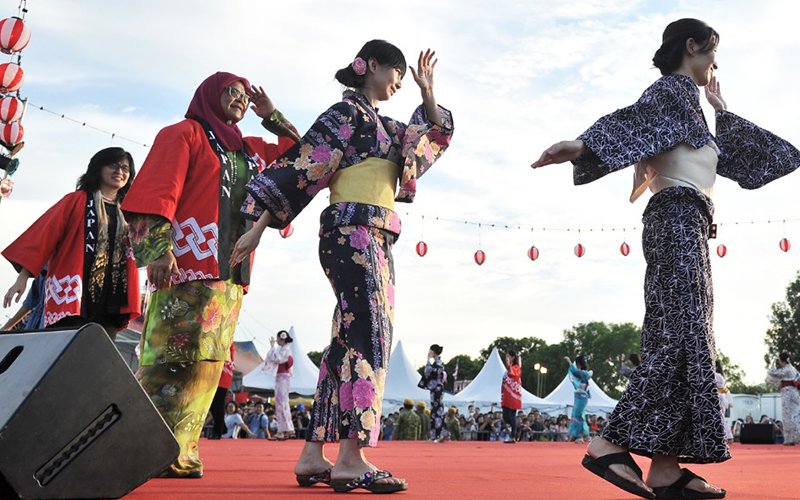
Malaysians and Japanese alike join in the Bon Odori festivities every year. Image from: JohnShen Lee/FMT
What’s more is that this will be the first Malaysian Bon Odori in two years, having been canceled previously due to the pandemic. And this year, with the blessing of the Sultan of Selangor, no less, the festivities look set to be bigger than ever.
This year’s Bon Odori in Malaysia will be held in Selangor and Penang on the 16th of July 2022.
- 690Shares
- Facebook678
- Twitter2
- Email2
- WhatsApp8

